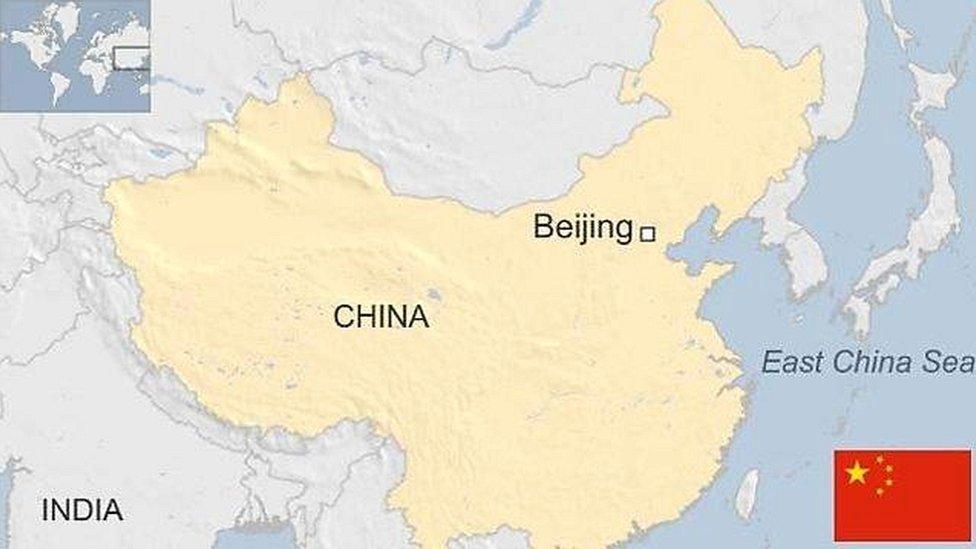Chinese microbloggers question al-Jazeera expulsion
- Published

Melissa Chan is the first foreign journalist to be expelled from China for almost 15 years
Chinese internet users have both criticised and ridiculed the authorities over the expulsion of the China correspondent for al-Jazeera English.
Many say they were surprised that a non-Western broadcaster has been targeted, which may indicate a further deterioration of media freedom in China.
Others have linked Beijing's hostility towards al-Jazeera to the role the broadcaster played in the Arab Spring, in which several authoritarian governments in the Middle East and North Africa were overthrown.
It is a bad omen for Beijing, some microbloggers commented, because most of the governments that expelled al-Jazeera have fallen shortly afterwards.
"Anti-China"?
Al-Jazeera is well-known in China because the state broadcaster CCTV and other official media outlets often cite its reports on the Middle East.
The broadcaster's decision to close its English-language bureau in Beijing attracted online attention after it was reported by the Global Times, a newspaper run by the Communist Party mouthpiece People's Daily.
The factual report by the Global Times was widely reposted on Chinese news portals and attracted hundreds of comments on the Weibo microblogging platform, China's equivalent to Twitter.
There were some nationalist voices welcoming Beijing's hard-line stance.
"Foreign media which publicly smear China's image must be severely punished," one microblogger said.
Speculating on the reason why al-Jazeera is being punished, another web user said, "Maybe it often voices support for the separatist forces in Xinjiang!"
But most comments were critical or cynical about Beijing's restrictions on the broadcaster.
"Al-Jazeera shouldn't be counted as a Western anti-China media organization, should it?" one web user asked.
"What? Even al-Jazeera, run by our Arab brothers, has been expelled? Why don't the propaganda authorities reflect on this?" said another.
Some online comments asked what Beijing's latest clampdown may mean for media freedom in China.
"Is China learning from North Korea?" asked several microbloggers.
Bad omen
As al-Jazeera English is forced to leave China, some internet users have mourned its departure.
"Goodbye, al-Jazeera," said Zhu Wenqiang, a journalist at the Economic Observer newspaper, on Weibo.
Prominent blogger Lao Rong wrote, "During the Arab revolutions, al-Jazeera bureaus were expelled by Ben Ali, Mubarak, Gaddafi, Salih and al-Bashir. In Egypt, Mubarak's soldiers charged into al-Jazeera's office at midnight to arrest people, destroy equipment and expel its personnel. Egyptians subsequently erected a big screen on Tahrir Square to show al-Jazeera programming to express their support."
Several bloggers have linked al-Jazeera's role in overthrowing Arab dictatorships to the closure of its Beijing bureau.
"Al-Jazeera's important role in Arab people's resistance to dictatorship and corruption has triggered hostility from all authoritarian and corrupt leaders in the world," wrote one microblogger.
Some have suggested that it may not be a good idea to expel the broadcaster, if recent history is any guide.
One Weibo user wrote, "On 31 January 2011, the Egyptian authorities expelled al-Jazeera because they were unhappy with its coverage of the crisis in Egypt. Several months later..."
Another was more explicit: "It's not a good omen. All those countries that expelled al-Jazeera have got into trouble. Will there be any exception?"
BBC Monitoring, externalselects and translates news from radio, television, press, news agencies and the internet from 150 countries in more than 70 languages. It is based in Caversham, UK, and has several bureaux abroad. For more reports from BBC Monitoring, click here, external
- Published8 May 2012
- Published8 May 2012
- Published8 May 2012

- Published25 August 2023
